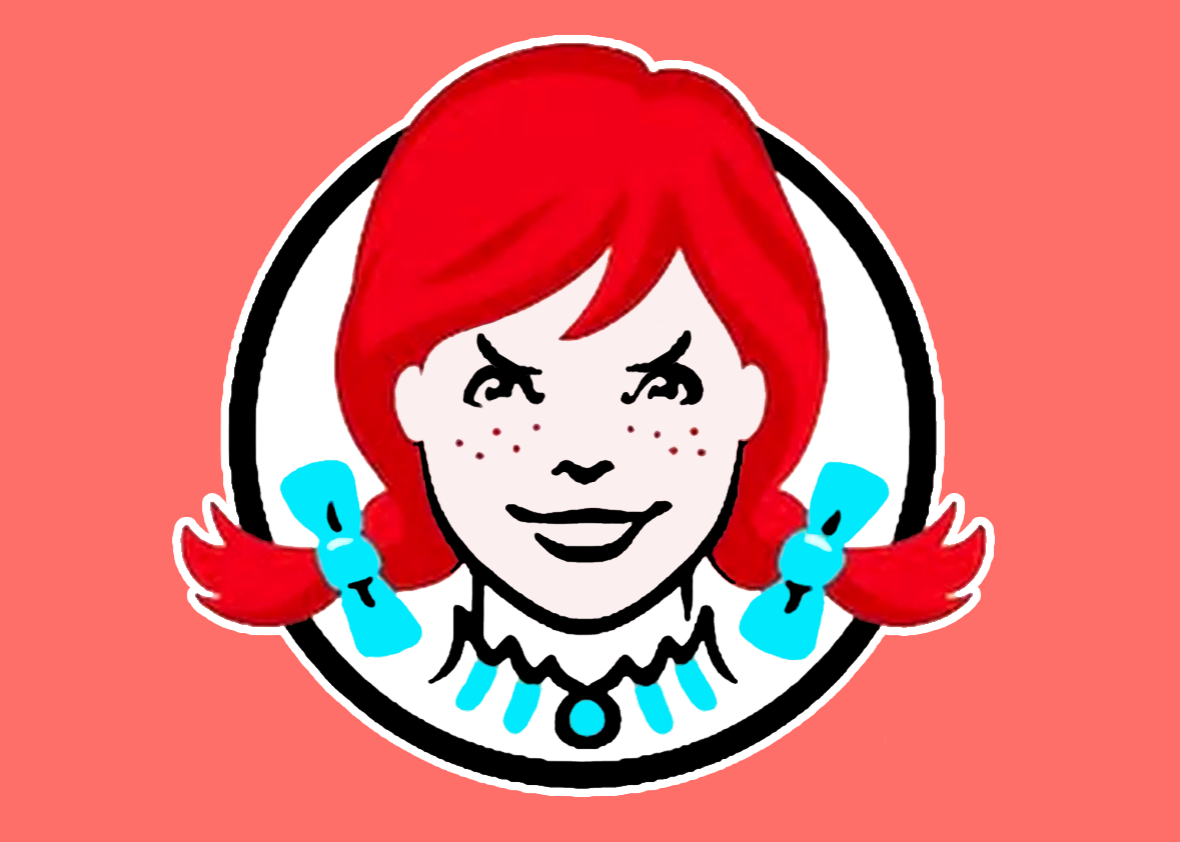Which stage of capitalism is it when ordinary consumers beg a multinational corporation to insult them? On Thursday, fans of the wryly snippy Wendy’s Twitter account clamored to be mocked by the hamburger chain’s social media team as part of the company’s National Roast Day. Despite the massive popularity of @Wendys (the chain’s social media squad has built up so much buzz it hosted a Reddit AMA last month), National Roast Day would have been an unremarkable brand exercise were it not for @Wendys’ surprisingly fierce attack on the Twitter account of Steak-umm, a Pennsylvania purveyor of frozen sliced steaks that in the spirit of Roast Day first wrote, “lets see if you can turn our frozen beef sheets into roast beef you corporate cowards.”
Then came the clapback. “You aren’t verified because your tweets are just a bunch of try hard edgelord fodder,” lobbed the Wendy’s team, before delivering a one-two punch at Steak-umm’s attempts to start beef with the fast food firm: “Wow. Beg for a roast off for months then crumple like a cheap suit. Ok, we see you.” @Wendys later clarified that its team was just matching the tone of the Steak-umm account. “Some people think it came off too strong,” the company not-quite-apologized. “Maybe they’re right.”
It was a rare misstep for the Wendy’s Twitter crew, though not its most infamous one. And the Steak-umm feud—which probably gave the smaller company the free publicity it had been seeking—is heads and shoulders better than KFC’s idiotic parody of Trump’s nuclear threat against North Korea earlier this week. @Wendys made clear that, unlike its other meme-ified insults, it would go after those who wanted to be ridiculed. Still, there’s something dispiriting and uncomfortable about corporations monetizing social media’s already unpleasant trolling culture, especially as the success of @Wendys leads to copycats. (Arby’s, Denny’s, Pop-Tarts, and MoonPie boast their own snarky Twitter accounts.) It’s bad enough that Wendy’s promoted its made-up holiday by bragging about “roast[ing] someone so badly they deleted their account.” But the brand loyalty that the company has inspired by being good at Twitter has led to outright celebrations of meanness and pointless tribalism. Maybe someone should remind Dave Thomas’ legacy-bearers that social media sucks enough already without his company trying to profit off Twitter Darwinism.
Unfortunately, the fact that corporate accounts are sowing discord online shouldn’t be a surprise, since it’s the natural convergence of several trends. Aggressive humor is a reliable path toward virality—an achievement that unlocks free press and cool points—so it’s no wonder that several fast food companies have adopted it as part of their online identities. Feuds are always clickbait and thus help that pursuit for virality. (Some of @Wendys’ most famous tweets go after McDonald’s.) Most importantly, companies are becoming increasingly bold about throwing elbows, at least online. Netflix and OkCupid, for example, recently mocked their own customers—the former by sneering at subscribers’ movie choices, the latter by deriding members’ usernames. It amounts to a kind of corporate negging: Are you one of our good customers or one of the users we’re ashamed of? The Wendy’s Twitter account issues a similar challenge to followers: Are you gonna laugh with us—because you know how to have fun—or is #TeamWendys free to go after your humorlessness?
To be clear, this isn’t on individual members of the Wendy’s Twitter team. (And in case it isn’t obvious, the chain is one of several companies engaging in similar online marketing.) The people who run @Wendys are presumably doing what their bosses want them to do, and they’re good at it. (This was funny!) But the pitfalls are many. I don’t know what kind of employment protections social media teams at fast food companies enjoy, for instance, but it doesn’t seem quite fair to ask workers to keep walking up to the edge, and if they happen to make a mistake and fall off, be offered as sacrificial sheep to the internet’s outrage machine. And it’s disturbing to see Wendy’s et al. accrue cachet by exploiting our worst impulses online—hostility, sectarianism, endless pile-ons—and to implicitly ask regular schmoes to side with a multibillion-dollar junk-food peddler against a fellow social media user, because the latter doesn’t have the benefit of hiring professional jokesters.
Corporations wield a unique power in setting the tone of the Twittersphere, too. As one of the traditionally most conservative forces in society, their participation in social media’s troll culture serves to entrench the perception that hurling insults is what Twitter is for. (You may agree, but that doesn’t make it right.) If these companies truly care about corporate citizenship, they should try to make the internet a better place, too.
